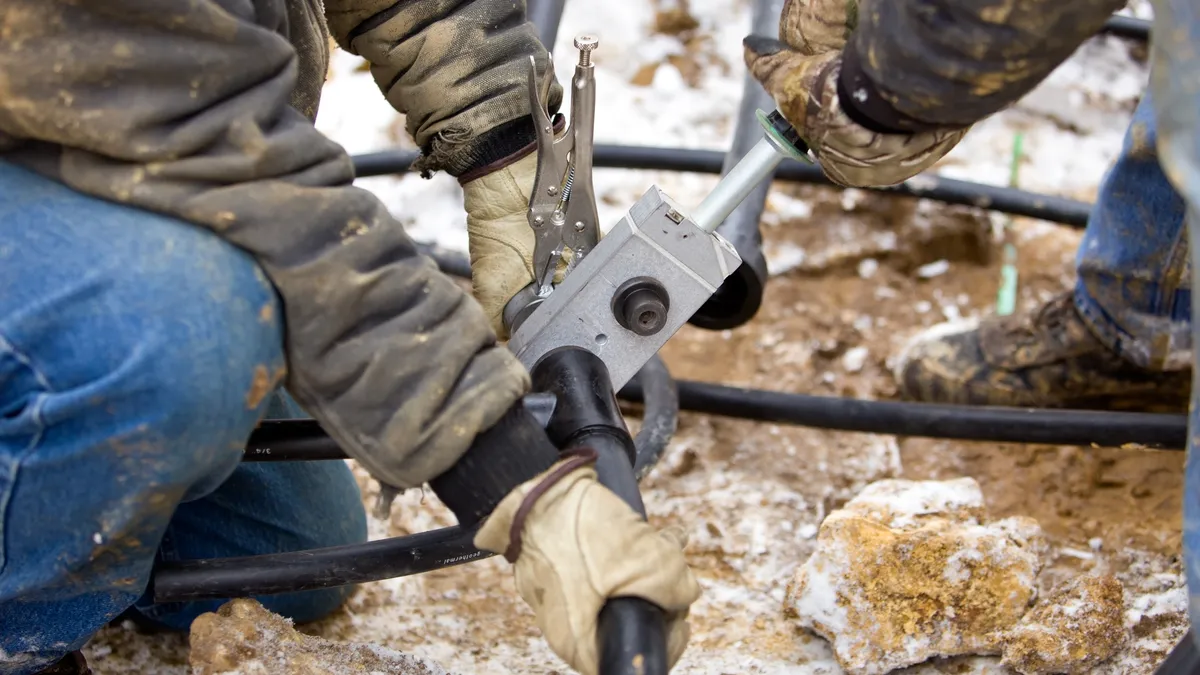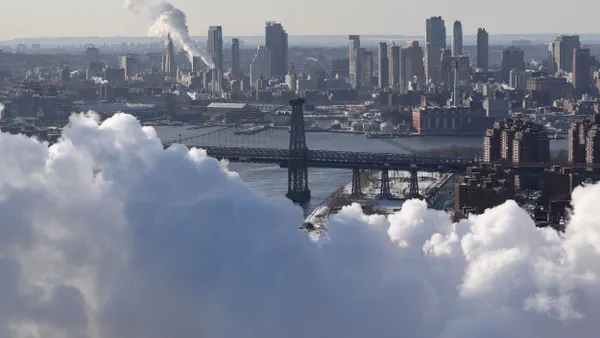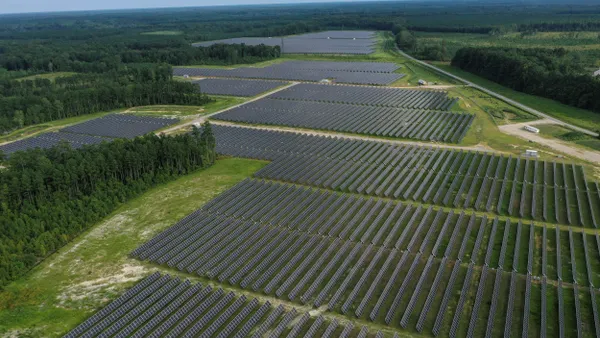Dive Brief:
- Five U.S. communities’ construction of community-scale geothermal heating and cooling systems will get more than $35 million from the U.S. Department of Energy’s Geothermal Technologies Office, according to a Dec. 11 bulletin.
- The selected projects will help decarbonize buildings in Chicago; Ann Arbor, Michigan; Framingham, Massachusetts; Hinesburg, Vermont; and Shawnee, Oklahoma.
- The U.S. has few community-scale geothermal systems compared with other countries, the Geothermal Technologies Office said. It hopes these five projects will help other U.S. communities see how they can leverage energy underground to heat and cool buildings.
Dive Insight:
U.S. building decarbonization advocates are expressing growing excitement about the potential of thermal energy networks to move entire neighborhoods away from burning fossil fuels on-site for heating and cooling. Geothermal networks typically rely on underground pipes and geothermal heat pumps to harness the earth's relatively constant underground temperature to heat and cool buildings.
In April 2023, the DOE announced that it was providing 11 communities with a total of $13 million to design community-scale geothermal systems. Coalitions in those communities selected project sites, assessed the geothermal resources available, conducted feasibility analyses and local engagement, and identified workforce and training needs.
The system sizes and technologies of the five selected projects differ, according to DOE. About $10 million each will go to Ann Arbor, where the city is leading the project, and Chicago, where environmental justice and economic development group Blacks in Green is spearheading the effort.
The Framingham, Massachusetts, project, led by clean energy nonprofit Heet, will receive $7.8 million in federal funding, while GTI Energy, a company focused on energy transition solutions, is building a system in Hinesburg, Vermont, with $3 million. The University of Oklahoma will lead the construction of the Shawnee, Oklahoma, system with $7 million in federal funding.
Among the challenges to widespread thermal energy network deployment are difficulties in designing “replicable” systems that can be readily customized for specific sites, Zeyneb Magavi, executive director of Heet, told Smart Cities Dive last month. Magavi also cited the steep learning curve for some city planners and other stakeholders in understanding the potential of thermal energy networks.
















